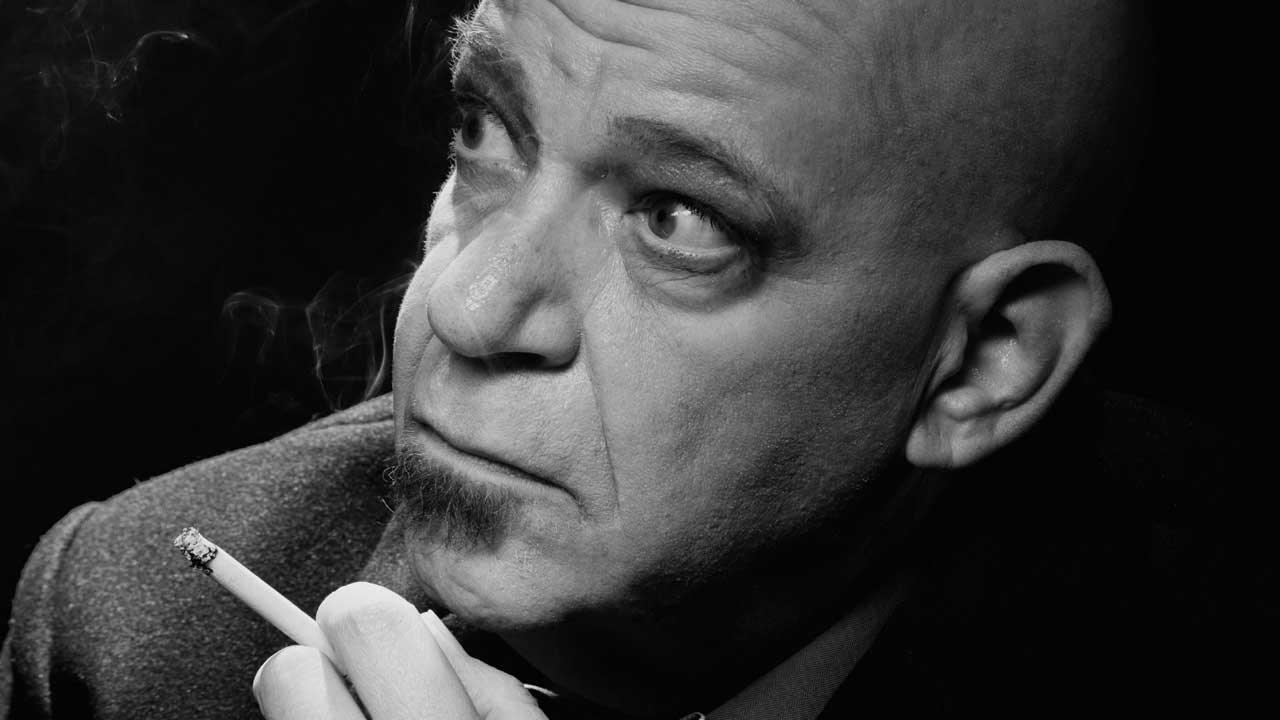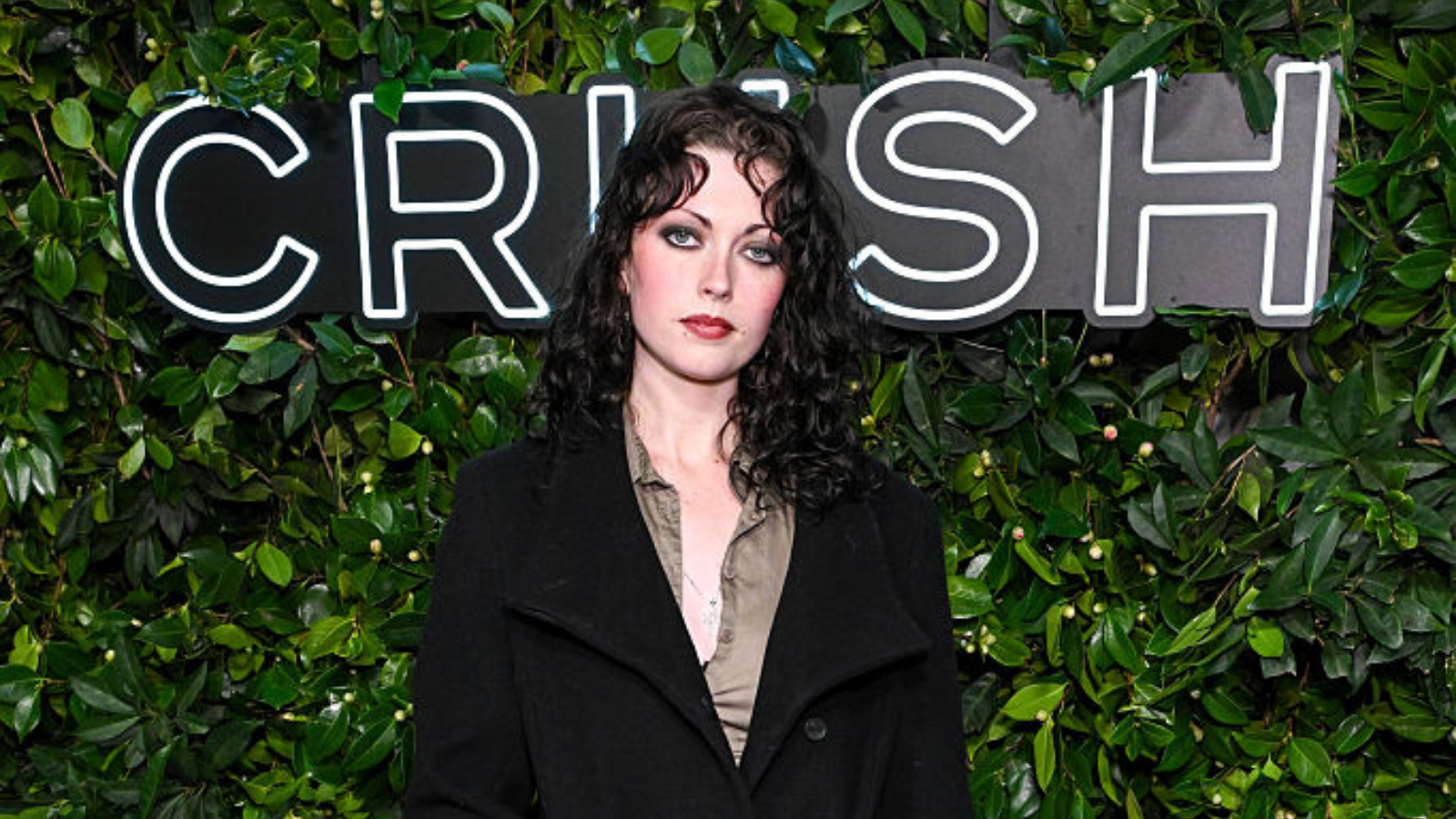"When he did the four-tom fill that he was famous for, I almost fainted twice": Masters Of Reality's Chris Goss on Ginger Baker, David Bowie and the aggression of Rick Rubin
The gospel according to Chris Goss

Masters Of Reality mainman and noted Kyuss/Queens Of The Stone Age desert-rock pioneer/producer Chris Goss has just risen and is partaking of his first coffee and smoke of the day, while talking to Classic Rock.
“The pictures I saw as a kid of Keith Richards and Jimmy Page with cigarettes hanging out of their mouths, I can’t shed that,” he says. “I associate the action with rebellious music, and so I’ll die right along with them, I suppose.”
A witty interviewee as dry as the Joshua Tree area of California where he lives, with more than 40 years of music business experience, Goss imparts wisdom on the importance of Brian Jones’s hair, sunrise light frequencies, old-school studios, the magic of jamming with Ginger Baker, and why the heck it’s taken 16 years for a new Masters Of Reality album, The Archer, – his “most personal, less esoteric” – to reach our ears.

Creating art takes as long as it takes
“Especially if you want it to be personal and not obligatory. Creation happens in the brain over a period of time, not where you say: ‘Okay, I’m under contract to do an album, therefore I have to make music now.’ I have to be inspired to write an album. The period of time between 2009 and the present was ‘interesting’, but it’s probably more ‘harrowing’ when relating to the psychology of the world during the last sixteen years.
"Not much music inspired me in that time, but the loss of Bowie, and the release of the Blackstar album, was such an incredible way for him to go – he was the first artist to actually analyse his death in public – that was somewhat of an inspiration to stop thinking about things, get off my ass and just do it.
"I felt like I had some kind of analysis to add. I have had a tendency to be very esoteric in my musical announcements, and this record took a left turn into a more personal state of being. I’d found the fodder for The Archer in my own crisis, not the world’s.”
I didn’t choose mindfulness, mindfulness chose me
“There are so many levels of mindfulness. I mean, I have to pay my American Express bill after this call, is that being mindful? The Jungian universal mind, being part of collective unconsciousness and shared ancestral experience, is probably how I’ve spent most of my life, but not intentionally. I guess I was born to put a finger on the pulse of the vibe of the world – we’re given this thing, and we have to do our thing back at it, and that’s the mindfulness that really matters, I suppose.”
Sign up below to get the latest from Classic Rock, plus exclusive special offers, direct to your inbox!
Spirituality is part of an artist’s job
“It wasn’t a moment of realisation that I had this side of me. Spirituality is the theme of a lot of my favourite artists, from Kubrick to Bowie, and it takes on a sense of isolation, like you may be the only one floating out there in space, hence 2001 and Major Tom.
"Looking underneath modern communications to see who or what’s really pushing it all is our [the artist’s] job. I’m not an intellectual, I’m a blue-collar man with the frustrations of a blue-collar man and perhaps an ability to poetically sum things up a bit more. But I’ve usually hidden it under layers of esoteric bullshit [laughs].”
My debut album holds painful memories for me, but I had a coping strategy
“The first Masters album, The Blue Garden [1989], was an exercise in isolation. The band was not in good condition and we had a very aggressive producer in Rick Rubin. I felt as though the music’s intended message got convoluted by the direction of the world’s most popular producer at the time, and I went with it: “Okay, listen to this guy, maybe he makes sense.”
"I deeply regret this period now. But how do you move on? You find people who are like-minded to be in your band to help get on tape what feels good to you. Shortly after I left Def American and Delicious Vinyl finally bought my contract from Rick Rubin, they re-released that album.
"Ginger Baker joined the band a month or two after that, a very like-minded individual very aware of the bullshit that comes along with making music. I felt empowered, and that gave me a lot of strength to move forward.”
You expect creating music to be difficult, but simplicity is the key
“I remember the day I learned how simple it was to play the chords for Rock And Roll by Led Zeppelin. It was like this major discovery. What Jimmy Page was doing – to start with – it’s very simple. He’s a master, and a master is not afraid of simplicity. The song structures became more complex and deep as time went on, of course. I’ve been led astray by more complicated things since, but I always knew simplicity should be the root.”
Brian Jones’s hair changed my life
“My aunts bought me the Rolling Stones’ Out Of Our Heads LP when I was six or seven years old. The music was pretty intense, but Brian Jones’s hair – the bangs – was a benchmark for me. Later, I acquired those bangs, and the dark circles like the ones under his eyes beneath those bangs. His image and character was my first introduction to self-destructiveness, and the role that it plays in art. There was something about Brian that was different from every Stone on that LP cover.”
Prog rock showed me how to kick down barriers
“The first prog music I got into was Yes, then Jethro Tull. From the start, I loved the musicianship. What early prog bands learned from classical music mixed with a love of pop meant they could string you along in a way that was beautifully done. The longer pieces of music were awe-inspiring, and when you saw them live it was just a wonderful experience.
"Prog broke down any barriers for me. Musically and lyrically you could go where you wanted to and let your mind take over. Then I moved on to jazz fusion, particularly Mahavishnu Orchestra, and that was a profound era for me.
"I look back on the years of 1971 to 1973, when I was just beginning high school, and every single category of music was blasting out and doing well, from Stevie Wonder to the Stones to funk to jazz fusion, prog, folk music, Joni Mitchell, and people were so open to it all.”
Jamming with Ginger Baker can make you swoon
“I have to feel a riff in my spine, it has to make me move. When working up a riff, I’d say never settle for the first version. Turn it upside down, sideways, and keep jamming on it and arrange it so the power is increased and it becomes a body game.
"I met Ginger Baker briefly at a party in the early nineties, and my then-manager said: ‘You guys should jam’. Ginger rolled his eyes back, like: ‘Yeah, sure’. Anyway, the manager actually got Ginger and his kit to the rehearsal studio, and we jammed.
"Some very powerful things happened, and when he did the four-tom fill that he was famous for, I almost fainted twice because I was transported back to being twelve years old and listening to Live Cream. I felt the riffs in my spine; within three minutes we knew we’d be working together.”
I’m a night owl, but I’m having to recalibrate
“I’m nocturnal, so I’m not getting the sunlight that’s so important to not just our skin, but our internal melanin, in our brain. I’m into the whole electromagnetic frequency thing that Tesla was onto a hundred years ago, and I’m a follower of [circadian biologist] Doctor Jack Kruse. His work is around the harm that artificial light does, and I’m discovering that my mindset is affected by this. So if I’m up late I’m trying to get out to see the sunrise, because the colours and the frequencies of the colours are very important to us.
"With blue light and iPads and iPhones, here’s an indoor brainwashing thing that’s kind of happening, and it’s affecting everybody. It’s a trans-human agenda, I suppose. But I won’t get into that right now.”
Working as a producer has to light something up in me – especially now budgets are slashed
“Looking back on the people I’ve worked with, I can’t be certain if talent found me, or did I find them. Whatever the answer, there’s got to be something in the music that lights me up. But I’ve found it more and more difficult these days, especially with budgets for recording being carved down to nothing. We used to be able to spend three months making an album, with proper rehearsal and studio time to experiment, with a 200,000-dollar budget.
"God bless the people who can make records for the budgets given to them now – more in the region of 20,000 dollars, unless you’ve got a cute face and a cute ass and a major label behind you. My label [Mascot] have been very patient with me over the last five or six years, and we’ve made a little go a long way.”
The best recording studios are like your friend’s basement
“A lot of the studios that made a transition from the seventies into the eighties and nineties went from a really cool vibe into becoming Darth Vader’s living room. They were all black and shiny. I tend to like rundown, vibey places that feel like your friend’s basement, places you want to hang out in. Unfortunately, there’s no circumnavigating the no-smoking rule now.”
When band members are scattered across the world they are still family
“Masters Of Reality members, unfortunately, live halfway across the globe. Half the time my drummer, John Leamy, is in New York, my bass player, Paul Powell, is in Ibiza, and Alain Johannes, the guitarist, is in Chile. It happens when you get older and you each have responsibilities.
Just for us to get together in the same room costs a fortune, so it’s been a long-distance love affair making The Archer. But we did manage to get together to record a few times, so it turned out fine. This is all due to their diligence and expense. So we’re separated, but when we do get together, it’s joyous, and we’re a family.
The Archer is out now via Mascot Records.
Jo is a journalist, podcaster, event host and music industry lecturer who joined Kerrang! in 1999 and then the dark side – Prog – a decade later as Deputy Editor. Jo's had tea with Robert Fripp, touched Ian Anderson's favourite flute (!) and asked Suzi Quatro what one wears under a leather catsuit. Jo is now Associate Editor of Prog, and a regular contributor to Classic Rock. She continues to spread the experimental and psychedelic music-based word amid unsuspecting students at BIMM Institute London and can be occasionally heard polluting the BBC Radio airwaves as a pop and rock pundit. Steven Wilson still owes her £3, which he borrowed to pay for parking before a King Crimson show in Aylesbury.
You must confirm your public display name before commenting
Please logout and then login again, you will then be prompted to enter your display name.

